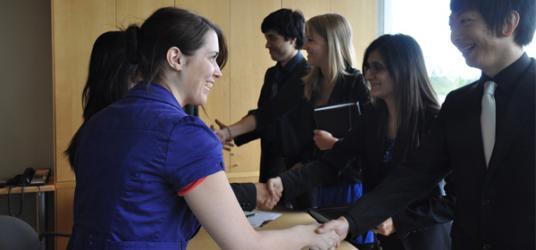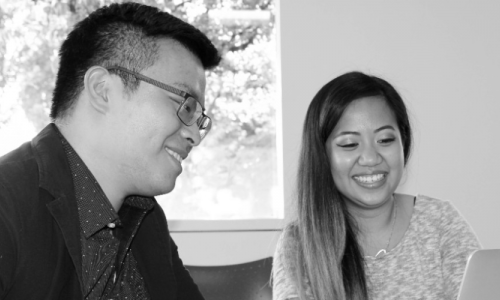
In today’s competitive job market, no matter what field or industry you are in, the key to discovering the hidden job market is through networking. It’s all about “who knows you” not who you know. Networking involves mutually connecting and building a relationship with others at a personal and professional level (this can include your friends, family, coworkers, or acquaintances) as sources of information and support. It is easier to find employment if a relationship or rapport has already been established. Employers are more likely to hire qualified people they know and like, than job applicants they only know on paper.
Here are Some Top Reasons How Networking can Benefit You:
-
Gain insight and inside knowledge about your industry
-
Develop business contacts
Find new career opportunities -
Create and expand referral networks
-
Establish informational resources
Networking can be Both Informal and Formal, and can be Done Through:
-
Volunteering
-
Information Interviewing
-
Job Shadowing
-
Attending professional events such as conferences, career fairs, networking events
-
Membership in a professional Association (eg. BC Human Resources Management Association, Canadian Psychological Association etc.)
-
Establishing a mentor-protégé relationship
-
Asking and connecting with people you already know (ie. Friends, relatives)
Many students attend professional networking events sponsored by a professional association or school club, but feel anxious about what to say or how to behave to make that good first impression. It is important to relax and be yourself and go with an open mind. Remember networking events are about connecting and building a rapport with others, and not just about finding employment.
Here are a Few Tips on How to Make a Good Impression While Maintaining Professionalism:
-
Introduce yourself – tell the other person your name
-
Remember Names – pick a unique attribute about that person and link it to his or her name to help you remember them
-
Positive Attitude – Warm friendly greeting, genuine smile and a firm handshake
-
Be Prepared – Always bring your contact information preferably on business cards. Easy access to a pen is also helpful.
-
Ask Questions –a good way to break the ice and to start a conversation is to ask the other person questions such as where they work, what is their position etc.
-
Use Humor – Laughter lowers personal boundaries and can make people more open to each other. However, being “funny” is not natural for everyone, so use humor only when appropriate.
-
Maintain eye contact and focus only on the person speaking to you
-
Make a Graceful Entrance – Politely enter into a conversation by asking “may I join you.” You don’t want to be remembered as the “rude” person
-
Be Yourself – Be sincere in your approach to connecting with that other person. It may be the beginning towards building a future a relationship.
















